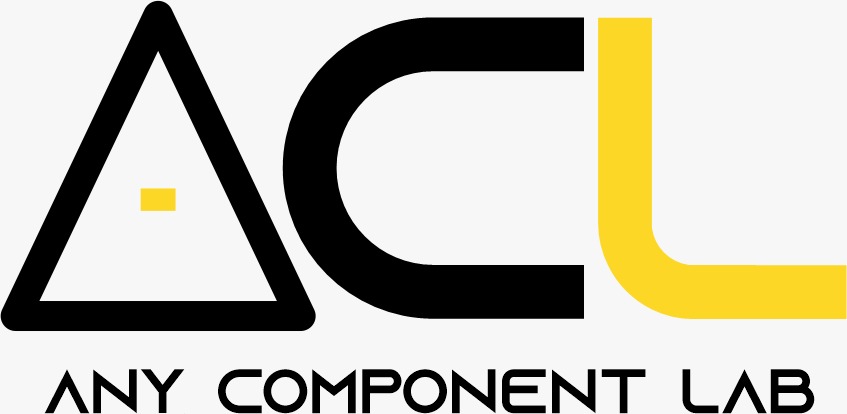
This article provides a detailed overview of the various engineering courses available in Ghana, including their content, requirements, and career prospects.
Civil Engineering
Civil Engineering courses in Ghana focus on structural design, construction, and infrastructure development. Core subjects include:
- Structural Analysis and Design
- Construction Materials and Technology
- Soil Mechanics and Foundation Engineering
- Transportation Engineering
- Hydraulics and Water Resources Engineering
- Construction Project Management
Eligibility: Credits in Core Mathematics, English, Integrated Science, and Elective Mathematics with either Physics or Chemistry.
Find out more here: https://www.ghanaeducation.info/career-options/civil-engineers
Mechanical Engineering
Mechanical Engineering programs cover the design and manufacture of mechanical systems. Key course components include:
- Thermodynamics and Heat Transfer
- Machine Design and Manufacturing
- Fluid Mechanics
- Automotive Engineering
- Industrial Plant Engineering
- Control Systems
Eligibility: Credits in Core Mathematics, English, Integrated Science, Elective Mathematics, and Physics.
Find out more here: https://www.twi-global.com/technical-knowledge/faqs/what-is-a-mechanical-engineer
Electrical/Electronic Engineering
These courses focus on power systems, electronics, and telecommunications:
- Power Generation and Distribution
- Circuit Theory and Design
- Digital Electronics
- Telecommunications Systems
- Control Engineering
- Microprocessor Systems
Eligibility: Credits in Core Mathematics, English, Integrated Science, Elective Mathematics, and Physics.
Find out more here: https://www.ghanaeducation.info/career-options/electrical-electronics-engineers
Computer Engineering
Computer Engineering combines hardware and software elements:
- Computer Architecture
- Digital Systems Design
- Programming and Software
- Network Security
- Embedded Systems
- Internet of Things (IoT)
Eligibility: Credits in Core Mathematics, English, Integrated Science, Elective Mathematics, and Physics.
Find out more here: https://www.mtu.edu/ece/undergraduate/computer/what-is/
Chemical Engineering
Chemical Engineering courses cover industrial processes and material transformation:
- Process Engineering
- Chemical Reaction Engineering
- Plant Design
- Industrial Chemistry
- Separation Processes
- Environmental Engineering
Eligibility: Credits in Core Mathematics, English, Integrated Science, Elective Mathematics, Chemistry, and Physics.
Find out more here: https://www.twi-global.com/technical-knowledge/faqs/what-is-chemical-engineering
Mining Engineering
Mining Engineering courses, particularly prominent at UMaT, include:
- Mine Design and Planning
- Mineral Processing
- Rock Mechanics
- Surface and Underground Mining
- Mine Ventilation
- Mine Safety and Environment
Eligibility: Credits in Core Mathematics, English, Integrated Science, Elective Mathematics, and either Physics or Chemistry.
Find out more here: https://www.angloamerican.com/our-stories/communities/how-to-become-a-mining-engineer
Agricultural Engineering
Agricultural Engineering courses combine engineering principles with agricultural applications:
- Farm Power and Machinery
- Irrigation and Drainage Systems
- Post-Harvest Technology
- Soil and Water Conservation
- Agricultural Structures
- Food Processing Engineering
Eligibility: Credits in Core Mathematics, English, Integrated Science, Elective Mathematics, and either Physics or Biology.
Find out more here: https://www.careerexplorer.com/careers/agricultural-engineer/
Biomedical Engineering
Biomedical Engineering courses blend engineering with medical sciences:
- Medical Electronics
- Biomechanics
- Medical Imaging Systems
- Rehabilitation Engineering
- Biomedical Instrumentation
- Healthcare Technology Management
Eligibility: Credits in Core Mathematics, English, Integrated Science, Elective Mathematics, Biology, and Physics.
Find out more here: https://www.mtu.edu/biomedical/department/what-is/
Petroleum Engineering
Petroleum Engineering courses focus on oil and gas extraction:
- Reservoir Engineering
- Drilling Engineering
- Production Engineering
- Well Testing
- Petroleum Geology
- Enhanced Oil Recovery
Eligibility: Credits in Core Mathematics, English, Integrated Science, Elective Mathematics, Physics, and Chemistry.
Find out more here: https://www.ghanaeducation.info/career-options/petroleum-engineers
General Entry Requirements
For all engineering courses:
- Minimum of six credits in WASSCE or equivalent
- Core subjects: English, Mathematics, Integrated Science
- At least two relevant science electives
- Aggregate score requirements vary by institution
- Some institutions may require entrance exams
Course Duration and Structure
All engineering courses typically:
- Run for four academic years
- Include laboratory work and practical sessions
- Require industrial attachments
- Conclude with a final year project
- Include professional practice and ethics modules
Professional Recognition
All engineering courses are accredited by:
- Ghana Institution of Engineering
- National Accreditation Board
- Professional bodies specific to each discipline
This comprehensive guide outlines the main engineering courses available in Ghana. Each course has been designed to meet international standards while addressing local industrial needs and technological advancement.
Institutions Offering Engineering Courses
Public Universities
- Kwame Nkrumah University of Science and Technology (KNUST)
- Civil Engineering
- Mechanical Engineering
- Electrical/Electronic Engineering
- Computer Engineering
- Chemical Engineering
- Agricultural Engineering
- Aerospace Engineering
- Biomedical Engineering
- Materials Engineering
- Telecommunications Engineering
- Petroleum Engineering
- University of Mines and Technology (UMaT), Tarkwa
- Mining Engineering
- Electrical/Electronic Engineering
- Mechanical Engineering
- Computer Engineering
- Petroleum Engineering
- Geological Engineering
- Geomatic Engineering
- University of Ghana, Legon
- Computer Engineering
- Biomedical Engineering
- Materials Science Engineering
- Food Process Engineering
- University of Energy and Natural Resources (UENR)
- Computer Engineering
- Electrical/Electronic Engineering
- Renewable Energy Engineering
- Ghana Communication Technology University
- Computer Engineering
- Electrical/Electronic Engineering
- Telecommunications Engineering
Technical Universities
- Accra Technical University
- Electrical/Electronic Engineering
- Mechanical Engineering
- Civil Engineering
- Kumasi Technical University
- Mechanical Engineering
- Electrical/Electronic Engineering
- Civil Engineering
- Chemical Engineering
- Cape Coast Technical University
- Electrical/Electronic Engineering
- Mechanical Engineering
- Civil Engineering
- Ho Technical University
- Electrical/Electronic Engineering
- Mechanical Engineering
- Takoradi Technical University
- Mechanical Engineering
- Electrical/Electronic Engineering
- Civil Engineering
Private Universities
- Ashesi University
- Computer Engineering
- Mechanical Engineering
- Electrical/Electronic Engineering
- Academic City University College
- Mechanical Engineering
- Computer Engineering
- Electrical/Electronic Engineering
- Regional Maritime University
- Marine Engineering
- Electrical/Electronic Engineering
- All Nations University
- Computer Engineering
- Biomedical Engineering
- Electronics and Communications Engineering
- Pentecost University
- Computer Engineering
- Electrical/Electronic Engineering
Additional Notes on Institutions
- Some institutions may offer specialized variations of these courses
- Programs and availability may change; prospective students should verify current offerings
- Entry requirements might vary slightly between institutions
- Some institutions offer both regular and evening/weekend programs
- International partnerships and exchange programs exist at several universities
This list includes major institutions offering engineering courses in Ghana. Prospective students should contact specific institutions for the most current information about program availability and requirements.



